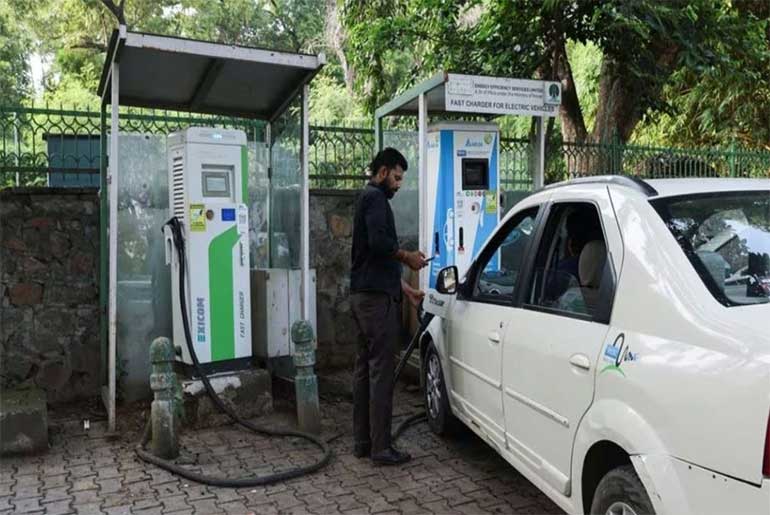The Tamil Nadu Green Energy Corporation Limited (TNGECL) will install 500 electric vehicle (EV) charging points in the state to help promote the use of EVs and minimize pollution in the state on a bigger scale, a government official said.
Recently, TNGECL entered into a memorandum of understanding (MoU) with the Institute for Transportation and Development Policy (ITDP) to assist it technically. This is considered a significant milestone in the work to limit the carbon emission in the transport industry that TN has been undertaking.
Within the framework of this cooperation, the group of TNGECL and ITDP officials paid a trip to New Delhi last week to learn more about the EV model of the national capital. The close orientation was the visit to the policies, infrastructure, and strategies to promote EVs in Delhi.
Delhi simply had to switch to EVs, as the pollution caused by the growing population and fast urbanization has become too high. The senior TNGECL official told TNIE, they have made giant strides to develop the EV infrastructure. Presently, there are 2,500 electric buses in Delhi, and it wants to increase to 13,000 by 2030. Nearly half of its bus depots already have EV charging amenities, and they are being installed in the rest of the depots. There is also the introduction of battery swapping systems for two- and three-wheelers in the city.
“EV owners can simply go to a station and exchange their batteries instead of waiting to charge. In fact, vehicle users do not own the batteries—they just use them and swap,” the official explained.
TNGECL Managing Director, Dr. Aneesh Sekhar, told TNIE, “We are planning to set up 19 EV charging stations in Chennai, including 10 with swapping facilities. The locations have been identified, and a feasibility study is being carried out with ITDP’s help.”
He added, “According to the Ministry of Power’s guidelines, charging stations should be available every 25 km along highways. So in the first phase, we plan to set up 20 charging stations along the Chennai-Coimbatore and Chennai-Kanniyakumari highways.”
As part of this, TNGECL is planning to create full-fledged EV hubs with public-friendly facilities. Aneesh Sekhar said, “We plan to include waiting halls, restaurants, drinking water, toilet facilities, and large parking spaces at these charging stations. A feasibility study is being conducted at all 20 locations with the support of ITDP. Once that is completed, TNGECL will start the installation work.”
Talking about the present EV infrastructure in TN, he added, “Presently, the state has around 1,300 EV charging stations. We are working on developing a digital map that shows the locations of all these stations. This will help EV users easily locate nearby charging points.”
In a bid to draw the attention of the station owners to contribute to the EV sector, TNGECL will also include a special online platform that brings together the landowners and interested tenants who may want to establish EV charging stations. “This website will act as a bridge between landowners and tenants. Both parties can register their interests, and it will make the process of identifying suitable locations much smoother,” Aneesh Sekhar said.
Call to remove fixed charges
K P Karthikeyan, founder and CEO of Zeon Electric Private Ltd, urged TN to reduce electricity tariffs and remove fixed charges for EV charging stations.
“In New Delhi, the electricity charge for EV charging stations is Rs 4.50 per unit for Low Tension (LT) and Rs 4 for High Tension (HT) connections, with no fixed charges. Kerala, UP, and West Bengal also do not levy high charges. We are paying Rs 165 per kw as a fixed charge for LT and Rs 304 for HT, in addition to Rs 9.75 per unit as electricity charges in TN, affecting the viability of EV charging businesses.” K P Karthikeyan, founder and CEO of Zeon Electric Private Ltd.



